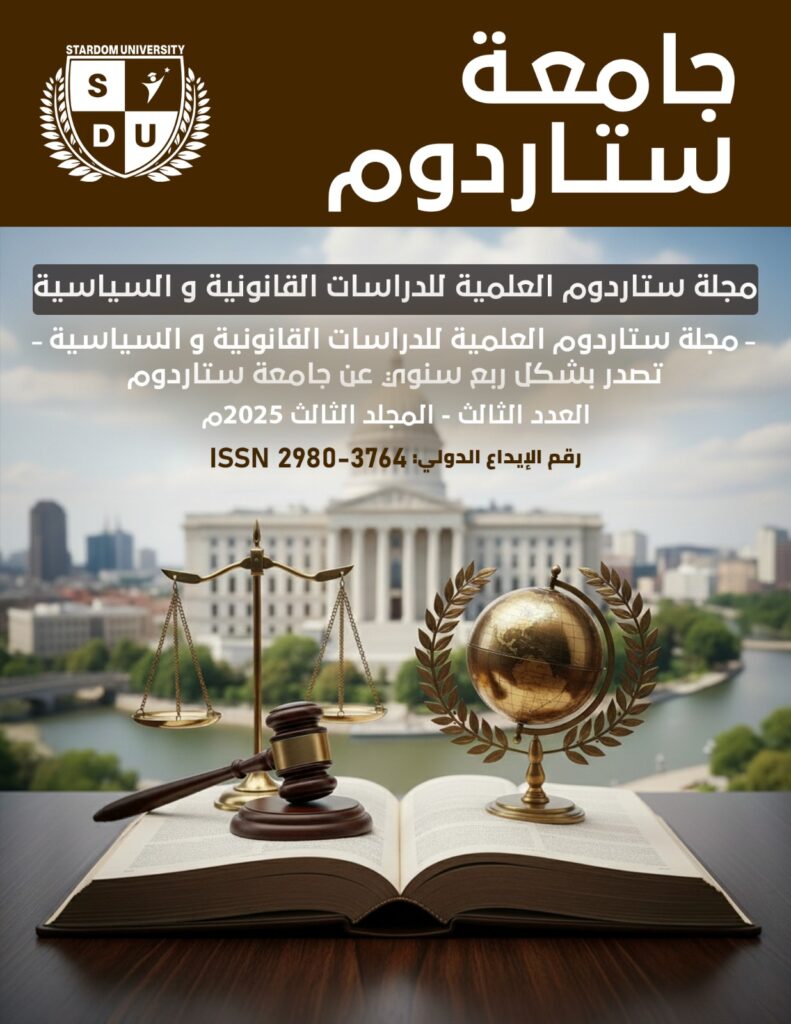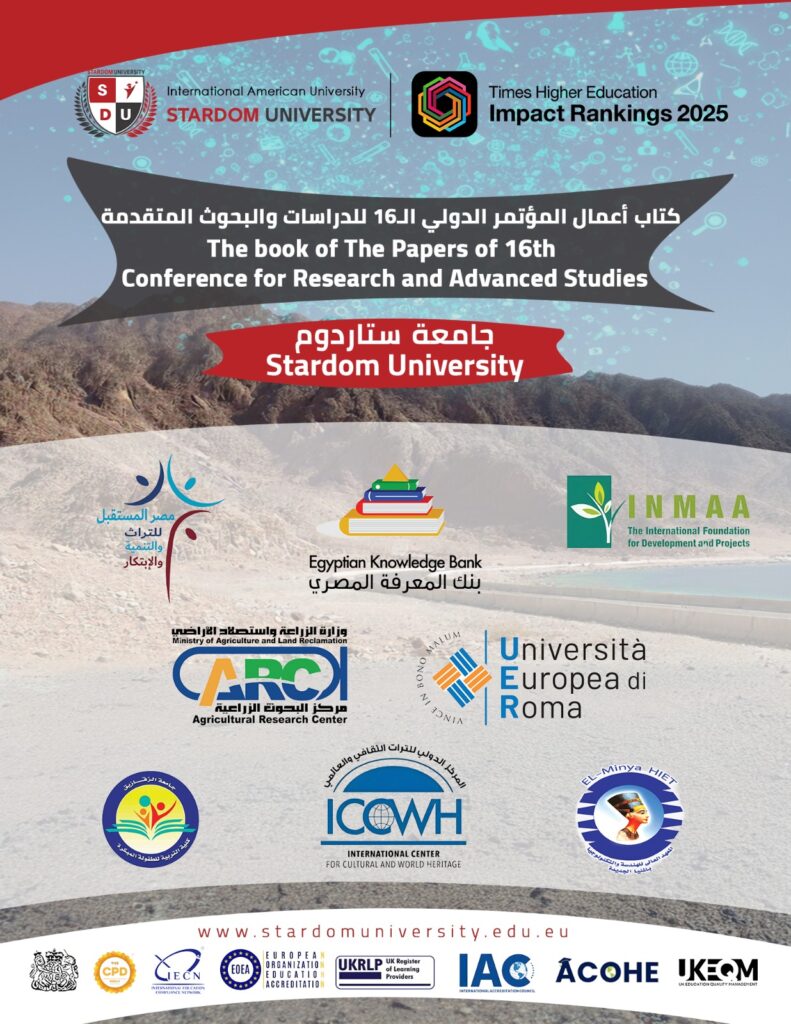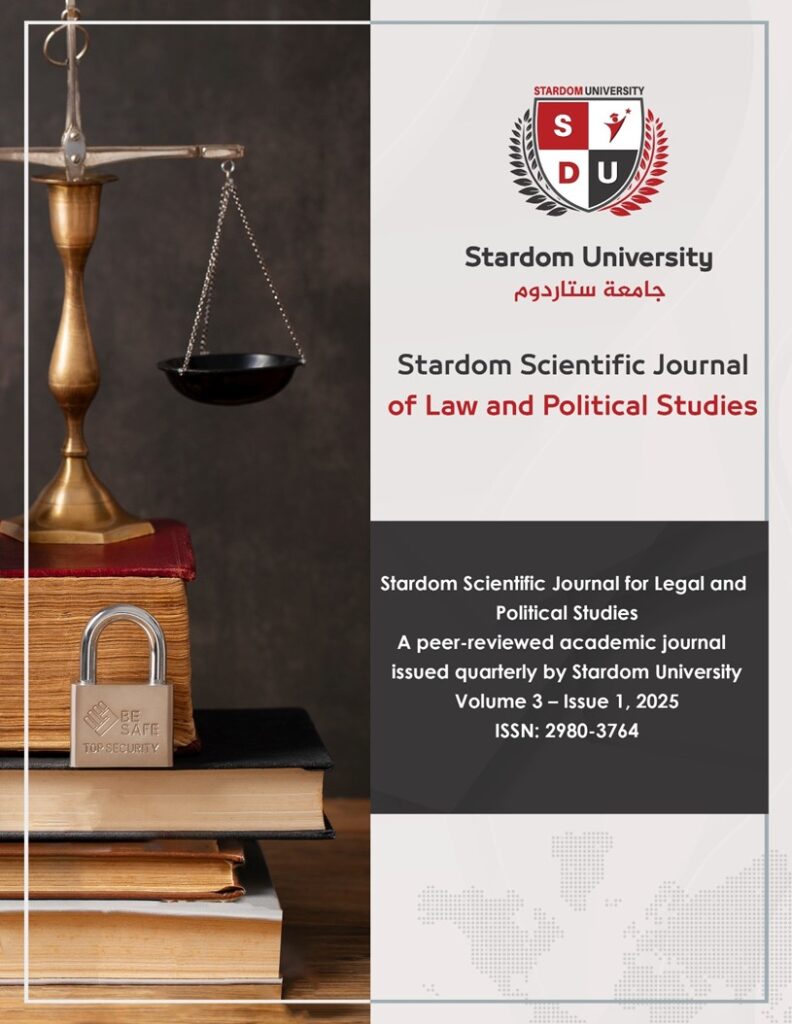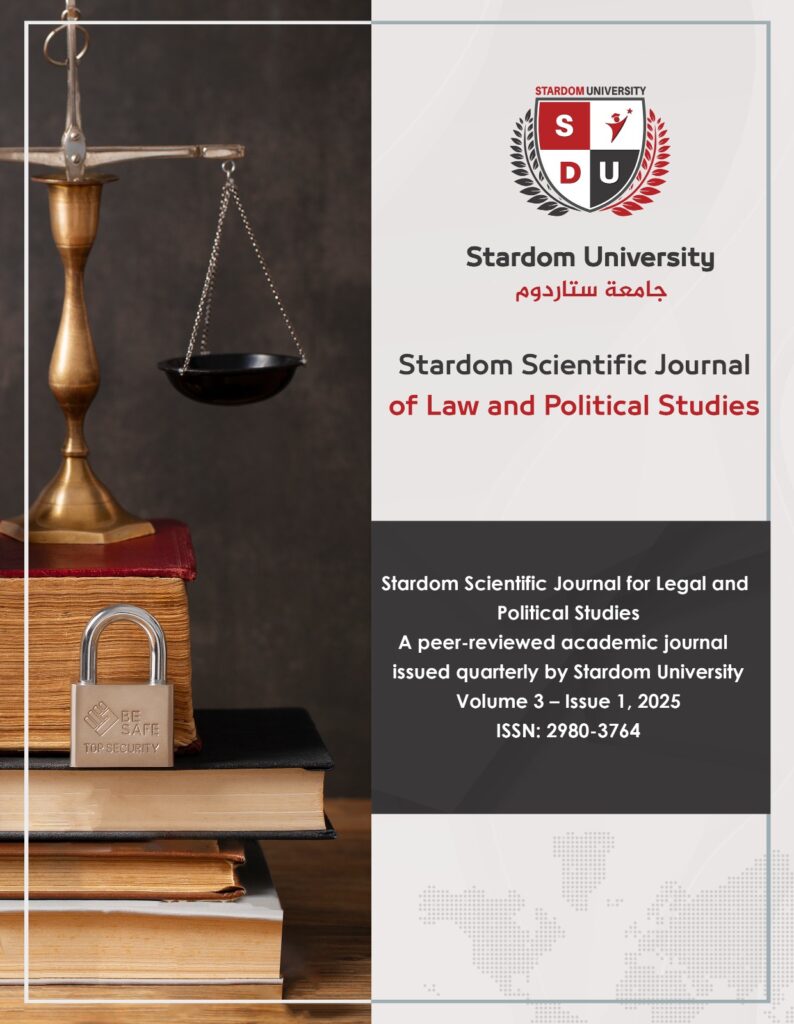- Stradom Journal
- Volume :2nd Issue- 2nd Volume 2024
ضوابط إجراءات تفتيش الأنثى بين مبادئ الشريعة الإسلامية والمقتضيات القانونية (دراسة مقارنة بين النظامين القانونيين السعودي والمصري).
The study examined the controls of female inspection procedures between Islamic Sharia principles and legal requirements (Comparative study of Saudi and Egyptian legal systems), the problem of the study was the practical inadequacy of the law’s provisions on female inspection, often. In addition to the legislative shortcomings of the legislature in the Saudi and Egyptian systems and some Arab legislation, a very important topic is The importance of the study stemmed from the importance of women and the need to give them legal protection, Preservation of its chastity and preservation of its dignity when conducting an inspection affecting its chastity positions The study aimed at indicating the controls of the female inspection procedures, the extent to which they relate to public order and the legislative and practical deficiencies, and found a number of findings, the most important of which were: The rationale of a female scar to carry out a female search procedure is that the inspection means that all her apparent and hidden physical positions are sensitized in order to detect them This includes examining her clothes, something that legitimacy and law refuse a man to do, Overlooking a female’s assignment to conduct a female search invalidates the procedures carried out as a result of that inspection In addition, the presence of female witnesses to attend the inspection with the women delegate to do so is a fundamental issue that has been ignored by Saudi and Egyptian legislators and by Kuwaiti and Yemeni legislators. The study recommended several recommendations, the most important of which are: We recommend that a female witness, accompanied by the female delegate, be present for searches. We also recommend that criminal police officers be very careful when conducting a female search and not deliberately conduct it with another female because it constitutes an infringement of her privacy and may cause criminal proceedings (for example, harassment).
Dr. MOHAMMED ELTIJANI MOHAMMED ELSHARIF






